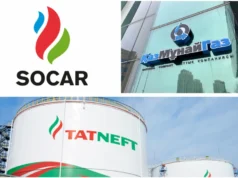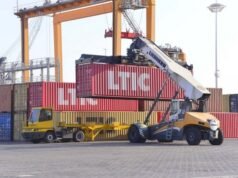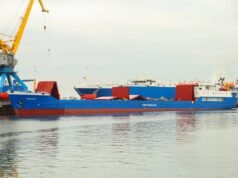Second phase of global Maritime Technology Cooperation Centres Network (GMN) project will upscale work of five regional centres.
The International Maritime Organization (IMO) and the European Commission (EC) have announced a second phase of the Global Maritime Technology Cooperation Centres Network (GMN) project, to upscale the work of the five regional centres, with a particular emphasis on pilot demonstrations aimed at achieving quantifiable reductions in GHG emissions.
IMO Secretary-General Kitack Lim and representatives of the European Commission (EC) formalized the agreement at IMO Headquarters (on 29 November), during the IMO Assembly (A 33).
The GMN Phase II project follows the successful Phase I, which established the five Maritime Technology Cooperation Centres (MTCCs), in Africa, Asia, the Caribbean, Latin America and the Pacific. During Phase I, resources were focused on building the human and institutional capacities in maritime administrations and port authorities and delivering small-scale pilot demonstration projects.
The €10 million, four-year Phase II project will focus on facilitating the introduction of portside energy efficiency measures and technologies and the retrofitting of domestic vessels (under 5,000 GT). The phase II project will assign greater resources to promote public-private sector partnerships and the long-term sustainability of the MTCC’s.
Secretary-General Lim thanked the European Commission for their generous support to the GMN Project. “This funding will enable the MTCCS to build on their work to date. By moving to phase two, we will have an excellent opportunity to encourage dialogue and focus on climate change mitigation particularly across the maritime transport value chain, which is key to addressing climate change objectives as we look forward to a green, just and equitable transition,” he said.
Ms. Fotini Ioannidou, Acting Director Waterborne Transport, Head of Unit Maritime Safety, DG Mobility and Transport, European commission said: “(This) project is playing a key role to enable national and regional cooperation to tackle the impact of climate change and reduce greenhouse gas emissions from maritime shipping highlighting our commitment to multilateralism and to working together at IMO with our international partners to find viable solutions to decarbonize shipping.”
Mr. Sergio Oliete Josa, Head of Unit Sustainable Transport and Urban Development, DG International Partnerships, European Commission, said: “We expect that the GMN Phase II project will continue promoting technologies and operations to improve energy efficiency and help entering shipping industry into a low-carbon future. This action will contribute to develop the skills required within the LDCs and SIDS to further deploy such GHG reduction technologies.”
The GMN MTCC project supports developing countries, especially least developed countries (LDCs) and small-island developing states (SIDS), in meeting the IMO’s energy-efficiency and greenhouse-gas reduction targets. (Visit the website: https://gmn.imo.org/)
The Phase II project will establish closer links with existing IMO initiatives and projects to help identify local decarbonization challenges and connect MTCCs to technology providers. These other IMO-implemented projects include the IMO Coordinated Actions to Reduce Emissions from Shipping (IMO CARES) project; GreenVoyage2050; the Sustainable Maritime Transport Training Programme (GHG SMART); FIN-SMART (Financing maritime decarbonization in developing countries, LDCS and SIDS).
Source:https://allmarinenews.com/







